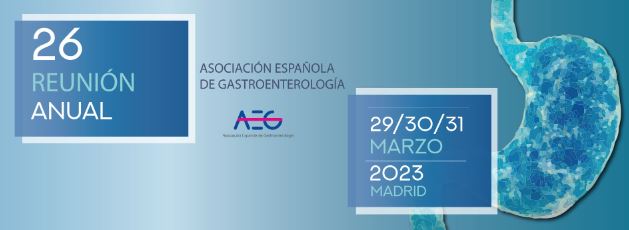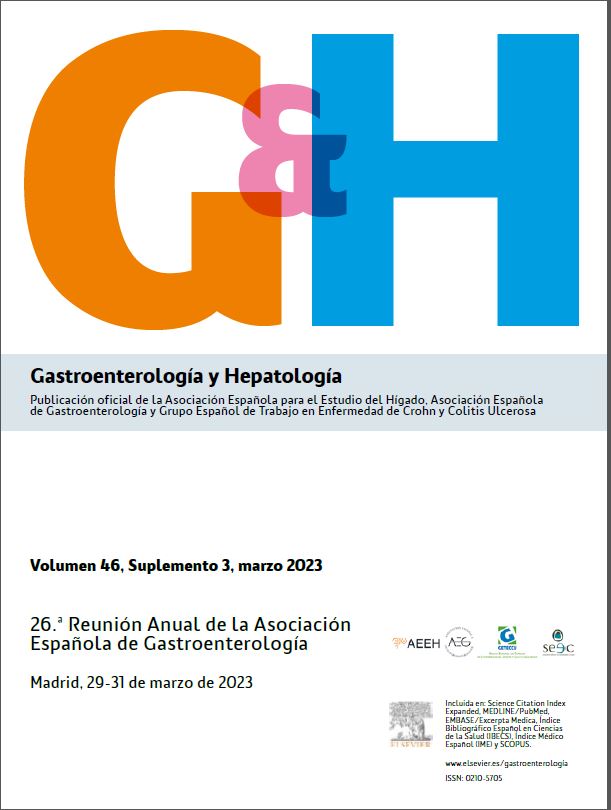106 - EFFICACY AND SAFETY OF GLP-1 RECEPTOR AGONISTS IN OBESE PATIENTS WITH INFLAMMATORY BOWEL DISEASE
1Servicio de Aparato Digestivo, Hospital General Universitario Gregorio Marañón, Madrid. 2Servicio de Nutrición, Hospital General Universitario Gregorio Marañón, Madrid.
Introduction: Obesity is increasing among patients with inflammatory bowel disease (IBD). A prevalence of 15-40% has been reported. Glucagon-like peptide-1 (GLP-1) receptor agonists decrease weight through reduced appetite, early satiety, and visceral discomfort. There is a lack of evidence on using GLP-1 receptor agonists as a treatment for obesity in IBD patients. The study aims to evaluate the efficacy and safety of GLP-1 receptor agonists in IBD patients with obesity.
Methods: A retrospective study was carried out in a Spanish referral hospital for IBD. All IBD patients who received GLP-1 receptor agonists indicated for the treatment of obesity were included between 2019 and 2021. We reviewed demographics, adverse events, and weight after 6 months of treatment with GLP-1 receptor agonists. Treatment efficacy was measured as the percentage of weight loss at 6 months. The adverse events experienced during the treatment were recorded as a measure of safety. We also evaluated factors associated with an early withdrawal of GLP-1 receptor agonists.
Results: We included 16 IBD patients who received GLP-1 receptor agonists during the study period. The median age was 50 years (IQR 44-55), and the majority were women (81%). Nine patients had Crohn's disease (56%) and 7 ulcerative colitis (44%). 87.5% of the patients were on biologic; the most common agent was infliximab (43%), followed by adalimumab (29%), golimumab (14%), and vedolizumab (7%). In clinical remission were 12 patients at recruitment. The median initial body mass index (BMI) was 35 (IQR 32-37), and the weight was 90.2 kg (IQR: 81.9-95). Most patients received liraglutide (68.8%), followed by semaglutide (25%). One patient lost follow- up. Three patients (20%) withdrew treatment before 6 months: 2 discontinued due to lack of effect, and 1 due to diarrhea. Of the 12 patients who maintained the treatment at 6 months, the median weight loss was 5.7 kg (IQR 3.7-8), and the weight loss percentage was 6.6% (IQR 3.6 -8.5). The BMI of these patients at 6 months is 32.3 (IQR 29.8-34.3). Fecal calprotectin increased in one patient, and another patient presented clinical activity during treatment as a perianal abscess and an increase in the number of stools. No patient showed a severe flare requiring admission or surgical treatment. Age was associated with an early withdrawal of the GLP-1 receptor agonist (48 years vs. 64 years; p = 0.04).
Conclusions: GLP-1 receptor agonist showed efficacy for the treatment of obesity in IBD patients. The GLP-1 treatment had a safety profile. Old age may increase the risk of treatment discontinuation.









